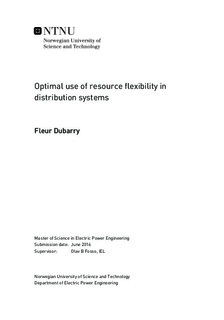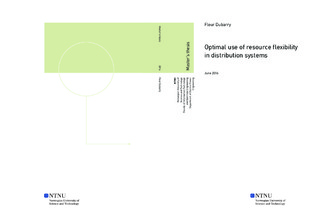| dc.description.abstract | To cope with the increasing share of dispatchable renewable energy sources, the consumer needs to evolve from being a regular passive consumer, to being a prosumer. The prosumer produces energy through residential solar panels, and tries to adapt his loads to energy production. This is done by shifting flexible appliances, such as a dishwasher, washing machine, tumbler dyer or an electric vehicle charge. The Smart-Meter automatically triggers flexible appliances as a response to low price signals to reduce the user daily cost, and is modelled in this thesis. Three main pricing schemes were tested, to encourage the use of more renewable energy sources and reduce the consumer s expenses: constant pricing schemes, dynamic ones and a main grid fee. The best result was obtained from dynamic pricing schemes with main grid fee, encouraging the use of local renewable power and reducing the daily cost by 9% comparing to a regular passive consumer. Yet, improved performance and reduced cost could be obtained if more flexible appliances were taken into account, making the most of the dynamic pricing schemes. | |

